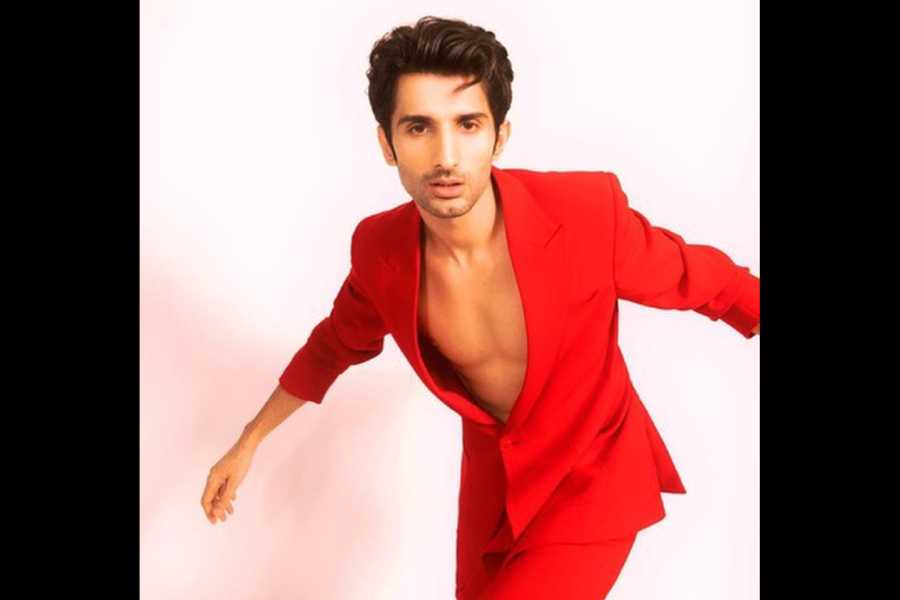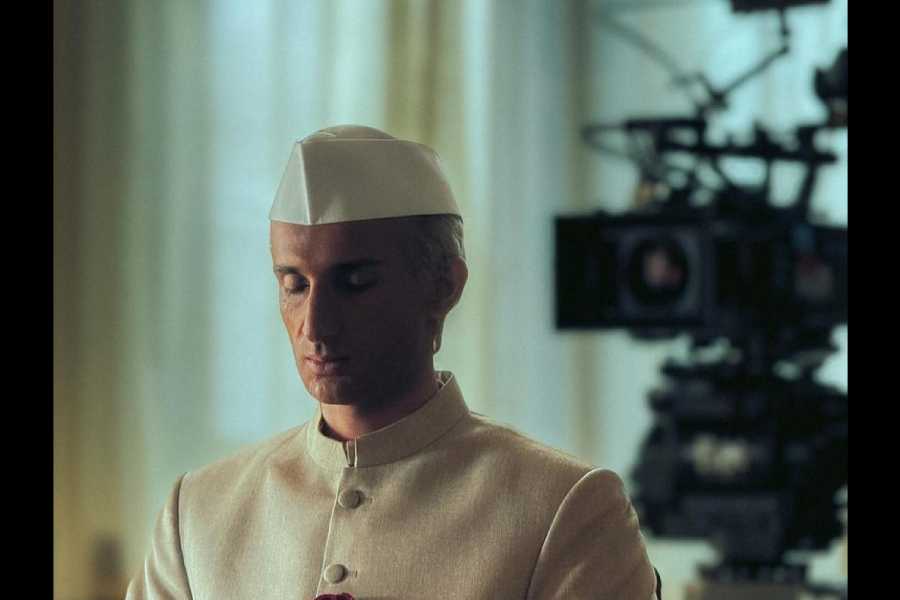Last year, he made us sit up and take notice of his happy-go-lucky, swashbuckling Jai Khanna in Vikramaditya Motwane’s standout series Jubilee. Now, Sidhant Gupta is once again raking in praise for playing Jawaharlal Nehru in Nikkhil Advani’s Freedom at Midnight. The SonyLIV series, which shows India on the cusp of freedom from British rule but facing the stark reality of Partition, has Sidhant, 35, embodying the part of Nehru with a maturity of craft far beyond his age and acting experience. t2 caught up with the actor for a chat.
What made you want to be a part of Freedom at Midnight?
I feel it is the most important chapter in our nation’s history. The way Freedom at Midnight has been shot, the way it has come together, all of it has just fallen into place. That only happens when the intent is pure. The intent of the Sony(LIV) team to firstly make the story, the intent of Nikkhil sir (Advani, director and showrunner) to tell this chapter of history has been very important.
How did the part come to you? Had you read the eponymous book by Dominique Lapierre and Larry Collins before you played Nehru?
No, I didn’t read the book intentionally because at the end of the day, as an actor, I didn’t want to draw comparisons. What I did was that I read the script and then I did my own research and my personal checks.
Before I said ‘yes’ to the part, I researched about Jawaharlal Nehru in depth and I developed a great amount of respect and admiration for him. It was a big responsibility to play him and before I started, I wanted to know more about the man, much more than what we had read in our history books or watched on TV.
I took the leap of faith of playing him only when all the boxes were ticked for my internal understanding and when I knew that: ‘Okay, this is it! This is the next step in my career.’ I am very obsessive when it comes to the characters that I play. And that leads to seeking and searching them out, no matter what.
When I spoke to Nikkhil, he said that you practically devoured everything you could find on Nehru as part of your research. Which aspects of him — as a man and as a leader — did you find the most fascinating?
I felt he was a giant in a human’s body. Very few people in the world are able to hold on to the past, present and future at the same time and move forward. He was one of those. His mind worked in a 360-degree direction in terms of thinking globally. At the time of Partition, we were lucky that we had someone like him as a leader who knew that education was the way forward for the country. From supporting the development of rocket science to building so many of the major educational institutes we have in the country today, he was at the forefront of it all.

Sidhant Gupta. Sourced by The Telegraph
He had tremendous foresight about the future of the country even as he kept battling his own past. He spent so many years in jail in British-ruled India. As a person, his curiosity was unbounded and travelled in all the right directions.
I have read the letters he wrote to his daughter (Indira Gandhi) while he was in jail. Every aspect of him spoke to me in a way which made me realise how well-rounded a human being he was.
People need to be aware of what this man stood for. We have very limited awareness of him as well as of the other leaders who shaped the future of a young India. Before my research, my opinion of Nehru, Gandhi and Sardar Patel was based on someone else’s opinion... based on what was in the air. I have now realised that one needs to have an individual awareness and opinion. It is very important.
During the course of the series, Nehru goes from his 20s to his 50s. What did you have to do in terms of body and body language to play him?
Watching his videos a million times over and solely inhabiting him. The battle, honestly, was to play him as a 56-year-old. As I said, I get really obsessed with my characters, and there is no end to my obsession. When I play a character, all day, I will slowly feel it inside me. Then it becomes like a voice and then it develops into an essence. Finally, it becomes an energy.
What were your biggest learnings from being on this set peopled with so many veteran actors and, of course, being directed by Nikkhil Advani?
Nikkhil Advani is truly gifted. He has a certain pulse, an essence in his storytelling. When you watch Freedom at Midnight, you will feel you have been made to sit on a rocket and sent out into the world on an adventure. I felt that when I was on set.
Your last series Jubilee was set in the film industry in a recently Partitioned India. Though the worlds of Jubilee and Freedom at Midnight are very different, did it feel like a familiar space because of the common time period?
I didn’t really feel that there were any parallels. But I remember shooting for this scene in Jubilee that was set in a refugee camp right after Partition. As Jai Khanna in that show, I had a certain playfulness and lightness to me despite being in that situation.
Freedom at Midnight was far more intense. For me, Jubilee is a timeless piece; Freedom at Midnight is total, intense chaos. That era had a different pace to it as we get to see in both shows. But in Freedom at Midnight, the chain of events and the lives of these people were unfolding in a way that they had no other option but to make those quick decisions.
Did playing Nehru feel overwhelming at any point?
All the time! Just imagine what Nehru and the rest of the leaders had to deal with. The British were leaving, a country was being born, the nation was being broken... so much was happening and through all of that, these people kept it all together. They were the best multitaskers in terms of just keeping it all together, and at the same time, moving forward. These are superhero traits.
You said you get obsessed with the characters you play. Is that why you do only one project at a time?
I shot for something right before Freedom at Midnight. I finished that and after three days, this project started. I had a tough time. I am doing a special appearance in the other project, but it is a cool special appearance. As an artiste, ideally, I would like to work on one project and have one voice at one time. I want to be able to say so much more through that than talking between projects.
Doesn’t a young and relatively new actor like you want to make the most of the opportunities that come your way and do more work?
There has been that temptation. But at the end of the day, I want my work to live forever. That means something to me. I don’t want to compromise on that aspect of ‘forever’. What I leave behind has to make me capable of looking back and saying that this was worth leaving behind.
Which actor has best played Nehru on screen? Tell t2@abp.in











